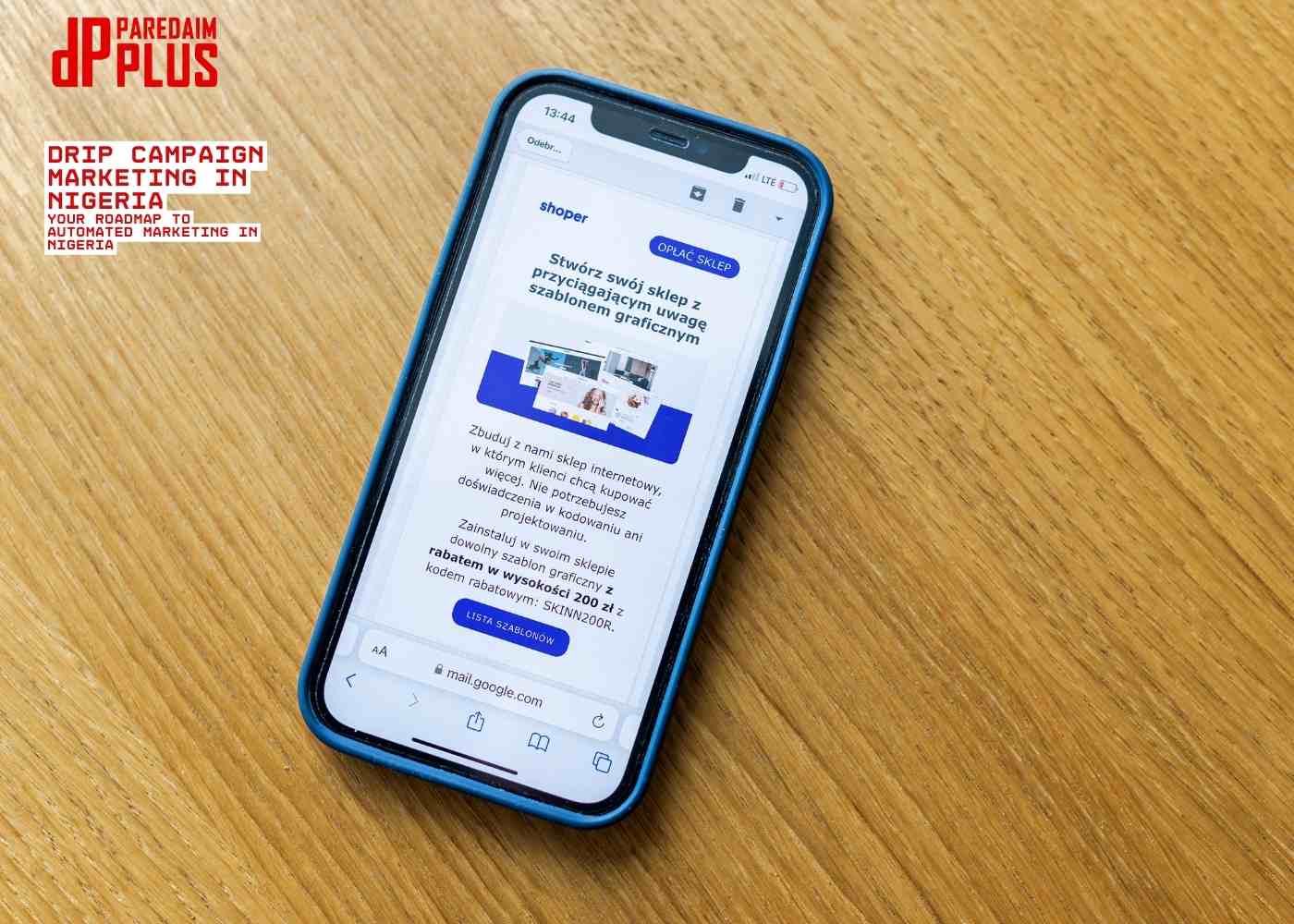
Businesses in Nigeria's rapidly expanding digital economy
are beginning to realize that marketing is not a one-size-fits-all affair. As
more and more companies join the digital rat race, attention from customers is
becoming harder to obtain. So, what is the answer? Accuracy. Precision is
achieved through the use of one of modern marketing's greatest weapons, the
Ideal Customer Profile, or ICP.
As of January 2024, Statista reports that Nigeria had 126
million active internet users and over 35% of the population on social media.
This vast digital audience ranges from urban Z-ers in Lagos to Agritech
start-up founders in Kaduna. But not all digital users are your consumers. If
not well targeted, budgets are wasted, ad spending and business lose muscle in an
extremely competitive market such as Nigeria's.
This is where ICP digital marketing Nigeria's strategies make
a difference. An Ideal Customer Profile doesn't describe a fuzzy persona but is
a data-driven representation of the company or person who would get the most
value from your product or service and provide your business the most value.
By differentiating customer segmentation in Nigeria through
an ICP lens this allows companies to bypass looking at vanity metrics such as
impressions or likes and instead look to develop qualified leads, conversions,
and ultimately sustainable digital marketing success in Nigeria.

Understanding the Ideal Customer Profile (ICP)
But before we get into how Nigerian brands should take
advantage of ICPs, let us first understand what an ICP is.
Your Ideal Customer Profile looks like this:
- An objective description of your ideal customer or company,
backed by facts and data
- Based on Purchase history, firmographics and psychographics,
engagements and behaviors
- Valuable for both B2B and B2C businesses
This underpins every aspect of Nigeria's digital marketing
strategies, from the building of campaigns to the channels used.
How is it different from a buyer persona, which contains
narrative storytelling, job roles and behavior.
Whereas buyer personas tend to be qualitative and somewhat generic, ICPs
are quantitative, specific, and focus on business impact.
ICP in Action
Consider a small business loan Nigerian fintech startup. A
good customer could be:
- Base: Lagos, Ibadan or Port Harcourt
- Size of business: 2-10 employees
- Yearly income: N5 million-N50 million
- Sectors: Retail, Agriculture, Transport
- Pain Point: Lacks working capital to purchase inventory or
pay suppliers
- Behavior: Actively searches for quick SME loans in Nigeria on
Google; follows financial literacy pages on Instagram
But this is not simply a demographic profile: it is a
marketing strategy blueprint for lazer-focused marketing Nigeria campaigns.

Why ICPs Are Critical in Nigerian Digital Marketing
1. Optimization of Resources
Techpoint Africa reports that SMEs in Nigeria allocate
between N500,000 and N5 million each year for digital marketing campaigns. As
ad costs increase on Meta, Google, and other local platforms, targeted
marketing becomes essential. ICPs stop you from scattergun marketing by
focusing your dollars on the audience that has the highest conversion rates.
2. Better Return on Advertising Investment
Brands implementing ICP-based targeting in Nigeria have seen
click-through increases of as much as 35% and conversions increase as much as
60%. By knowing who your best-fit customer is, you can have the most relevant
content and personalized offers such that every naira spent will have an
impact.
3. Enhanced Sales and Turnover
It's not just that ICPs attract, they also retain. When you
match your brand messaging and product benefits to your ideal customer, you see
increased customer lifetime value (CLV) and reduced churn. This is important in
the case of Nigeria, where CAC can be 5- 7 times higher than CRC.

Building an ICP in the Nigerian Market
An ICP in Nigeria would mean working with global best
practices, but contextualized to the Nigerian situation. Here's how:
1. Data Collection and Analysis
Gather data from:
- CRM systems
- Google Analytics
- Social media insights
- Sales reports
- Customer surveys
Consider metrics such as geolocation, spending, consumption
of content, bounce rates, and where traffic is coming from.
2. Segment and Prioritize
Segment customers relying on tools such as HubSpot or Zoho
CRM by:
- Geography (urban vs rural)
- Income and spending behavior
- Language preferences (e.g., English, Yoruba, Hausa)
- Digital device usage (mobile vs desktop)
- Industry (for B2B)
This directly informs customer segmentation in Nigeria and
ensures that campaigns are relevant concerning context.
3. Validate and Refine
An ICP is never frozen. Your product is always growing, and
so are your customers. Use A/B campaigns and current metrics to constantly
assess and improve your ICP.
ICP vs. Buyer Personas: A Nigerian Perspective
In several Nigerian brands, marketing departments do not
distinguish between ICPs and buyer personas. Here is how they serve different
functions:

The combination of the two presents a balanced perspective,
ICPs for segmentation and personas for storytelling Content.
How Nigerian Brands Are Winning With ICPs
Case Study 1: Ecommerce (Beauty Brand in Lagos)
A mid-sized beauty business in Lagos developed a targeted
ICP of highly Instagram-engaged women aged 18-25 in Lekki and Surulere.
Targeting this demographic through Meta Ads and Influencer Marketing increased
monthly revenue by 120% in a period of six months, while also decreasing cost
per lead by 47% and doubling repeat purchases.
Case study 2: Abuja EdTech
Mobile-first parents with a 30-45 age range located in Abuja
and Kaduna turned out to be the majority of people converting to support
NECO/WAEC prep, an EdTech startup. They switched to the focus on TikTok-style
learning-oriented videos and WhatsApp campaign sets, which caused a 4x
short-term tribe application download growth in 3 months.
ICP and Personalized Marketing in Nigeria
The only way to ensure personalized marketing in Nigeria is
by the use of smart ICP frameworks. For example:
- SMS campaigns addressing the region and interests of the
recipients
- Newsletters that are sent to the groups based on
professional role or income level via email
- Remarketing adverts depending on former behavior online
After introducing AI-based tools and CRM integrations, Nigerian
businesses will finally be able to send hyper-personalised campaigns on a large
scale, increasing their engagement and optimising the level of loyalty.

The Future of Nigerian Online Marketing ICP
As the Nigerian digital market is likely to increase by more
than 18 per cent per year until 2028, the need to target the audience
accurately is likely to become even greater. High-tech tools, such as the
AI-powered Performance Max of Google Ads and Advantage+ of Meta, need thorough
customer input to provide clients with success. ICPs will continue to as the
strategic driver of automation, AI, and ROI, rendering digital marketing.
In addition, more transparent ethical targeting is expected
due to the data privacy policies and awareness of the customers. With ICPs not
violating trust, Nigerian brands will be relevant and able to anchor the
strategy on customer value.
Conclusion
The digital and diverse market in Nigeria is no place to
shoot in the dark as a marketing strategy; that is a recipe for failure.
ICP Digital Marketing Nigeria is not about marketing to all;
it is about marketing to the correct people, those customers that have the
greatest likelihood of converting into customers, remaining and coming out and
singing your praises.
Regardless of whether you are a B2B SaaS solution in Yaba, a
fashion retailer in Port Harcourt, or a health-tech startup serving Abuja, the
development and activation of a strong Ideal Customer Profile is no longer
optional, but the template of long-term success.
When you align your marketing channels, messages, budgets, and KPIs around your ICP, you open the doors to digital marketing success in Nigeria, which is scalable, measurable, and highly
customer-focused.







